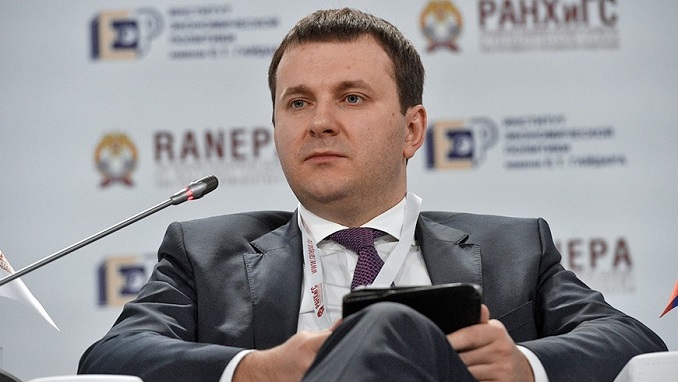Russia’s Economics Ministry last week revised its GDP growth forecast down to 1.9% from the previous 2.2% outlook, while in 2019 economic growth is expected to slow down to 1.4%.
But after that, the massive $126 billion six-year spending spree announced by President Vladimir Putin as part of his new May Decrees is expected to push the economy above the structural ceiling of 1.5-2%, with GDP growth expected to accelerate to 3% by 2022, according to the ministry’s estimates.
In the short-term, the measures designed to create the funds to pay for this spending will first slow the economy down, a draft review from the ministry said. The main reason behind the 2019 downward revision is a VAT hike, which was pushed through by the government after Putin’s inauguration along with an unpopular retirement age increase and oil and gas sector tax reform.
Previously the Central Bank of Russia on June 15 kept its basic interest rate unchanged at 7.25% only days after government’s decision to increase the VAT rate to 20%, citing the tax hike as the main reason to postpone the monetary easing.
Notably, along with the retirement age increase, which has caused a string of protests and cut into Putin’s high popularity rate, Russians might have more reasons for being upset with the new economic course taken by the Kremlin. Reportedly, the VAT hike is expected to increase inflation by up to 4.3% in 2019, which will slash real income growth from 6.3% to 1%, according to the ministry.
Investment growth, in the meantime, is seen at only a modest 3.1% in 2019, before leaping in 2020 to 6% y/y growth. The Minister of Economic Development Maxim Oreshkin previously argued that such investment growth pace is achievable with domestic factors exclusively.
Along with establishing a RUB3.5 trillion Growth Fund for infrastructure investment, the investment leap could be helped with more corporate crediting, stimulating savings, and corporate investment, Oreshkin believes.
Analysts surveyed by Vedomosti doubt that switching Russia’s economy from rent-distributing to an investment-growth model will take place in only the next 2-3 years and also doubt that such a leap is possible without attracting foreign investment or relaxing the “budget rule” and spending more oil and gas revenues.












